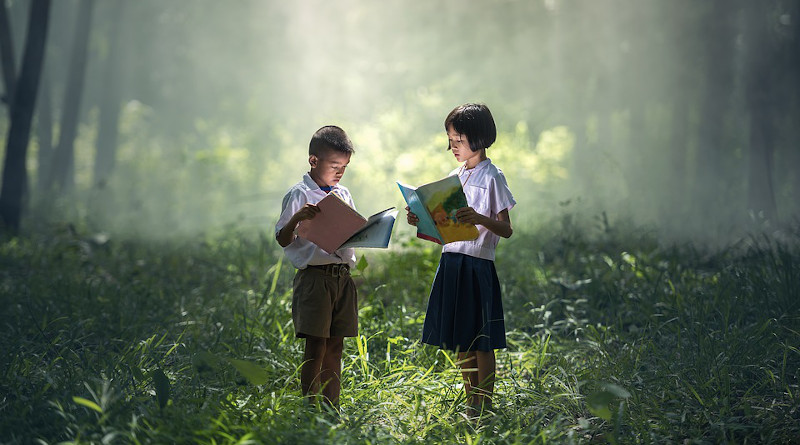We Must Make Education For Children Ecologically-Oriented – OpEd
Children (and adults, too) need to learn the principles of ecology (how life works in community), and they need to see the connections between human beings and the rest of Nature. The urgent timeframe of global climate change means that any learning that doesn’t contribute to these understandings could be considered part of the problem.
Indeed, the environmental crisis can be attributed in part to the inability of human beings to come up with sustainable ways of living together.
Here are some ways to “ecologicalize” teaching which is being practiced by the Cordillera Ecological Center in the Philippines:
1. Education programs sometimes include icebreakers, warm-up activities, initiative tasks, cooperative games, or physical adventure elements. Helping people work together better will always be a good thing, and creating a sense of community is essential for being eco-friendly. But how can we integrate environmental learning into these activities without drastically changing program elements and while still contributing to group dynamics and character building? It’s not easy, but it’s simple: We just need to stretch what we do to include mention of and learning about the rest of our natural “place” and community.
2. Ecologicalizing education means looking for principles of ecology and connections with the rest of Nature in as many of our learning activities as possible.
3. Follow up to any learning task that demands group work or cooperation can lead to discussion of the behaviour of fish in schools or birds in flocks. How did participants communicate to each other? Why? How do the strategies they came up with to meet their challenge compare with fish or birds dealing with a challenge such as a predator?
4. A group activity that demands cooperation can lead to participants discussing the similarities between humans and other social animals. For example, you can help your students learn how wolf behaviour can act as a metaphor for effective group functioning, character development and leadership.
That so many roles need filling to keep a classroom working well exemplifies the connectedness of the living web — what happens to the “web” within the physical and emotional space of the classroom if one participant falls down on the job? And how does this compare with losing one species or degrading one aspect of an ecosystem? Let’s talk about these things with students.
5. If your education programming already includes lots of hands-on Nature connecting, you can highlight and reinforce ecological understandings by pointing out or asking for evidence of Nature’s gifts or ecosystem services in action. This could be an ambulatory activity (one you do while walking between classes or travelling to different venues), or an ongoing project throughout the year.
6. Nature abides by rules. Games work well and reflect Nature if they combine rules with cooperation and some “friendly competition” (in the sense that every individual is doing his or her best). Beware of overstressing competition — the goal, it seems, of our culture. Ecology relies on mutualism (living things relying on each other), and life is all about synergistic symbiosis. In Nature, “the fittest” is the one who fits into its ecosystem best.


Dr. Mike, this is so spot-on. Currently in talks with Kristina Sendon Cordero and Roger Leo Carino to establish a learning hub/creative hub in Inarihan by the river. The area is a wildlife corridor. I urged Kristian to see about connecting with you as regards applying with the Echoing Green Foundation as a fellow.